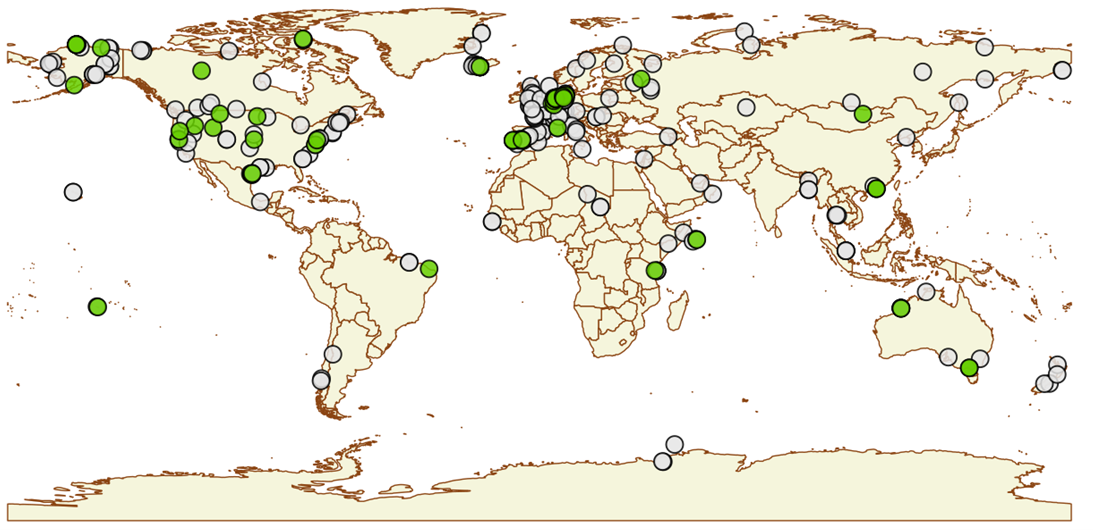Josh Nightingale
The International Wader Study Group has recently launched the Global Wader tracking-data project (www.globalwader.org), an effort to improve data infrastructure and collaboration in the wader-tracking community. The project builds on ongoing work led by the EcoFlyway and BirdEyes teams to identify and address the community’s needs.
Electronic tracking of waders is taking off fast around the globe, with many teams now developing projects harnessing this new technology. The aim of Global Wader is to serve as a centralized platform for sharing information, including best practices for tagging waders as well as details of current tagging studies. It will also serve as a central hub to combine tracking data to aid conservation of our beloved species.
The project’s first goal is to maintain an up-to-date registry of wader tracking studies, both completed and ongoing. This registry is intended to help facilitate collaboration between data-collectors with complementary projects, and serve as a point of contact to share guidance for new projects.

Global Wader also aims to promote best practices in curating hard-won wader tracking data. These tracks can be hugely valuable for conservation projects, such as the ongoing battle over the fate of the Tagus estuary. However, there is currently little large-scale coordination between taggers, making some data difficult to find and eventually combine, when there is an urgent need. There is also the risk that data may become lost to the community forever if not backed up in a suitable repository.
By partnering with the tracking-data repository Movebank, we can ensure that tracking data is backed up, findable, and stored in a standardized format – standardization helps enormously when collating information from multiple projects – while ensuring that data-collectors can control the visibility and accessibility of their dataset. For data already on Movebank, studies can be registered with Global Wader simply by adding the Movebank account (user: “gwtdp”) as a data owner or collaborator. For studies currently stored in other formats (e.g. files sitting in a computer), Global Wader can advise on the Movebank archiving process, especially for users new to the platform. We are also available to help upload data, particularly for those in our community that may lack professional availability to do so. More information, and a data-sharing agreement, is available on our website above. Please do get in touch!
There is also an appetite in the community for a platform to share information and advice about the tagging process itself, from selecting technology and attachment methods to ensuring bird welfare. We are working with colleagues who are developing field protocols to record such information, and will share it on our website to promote evidence-based refinement of tagging practices.
The project is currently being coordinated by Josh Nightingale and can be contacted at: globalwader@waderstudygroup.org


